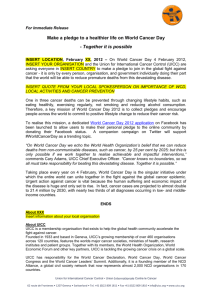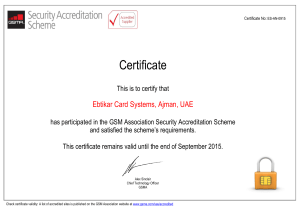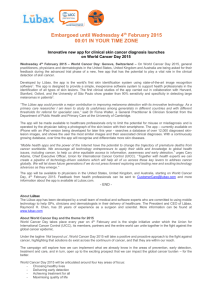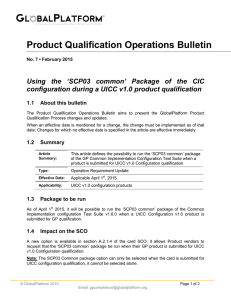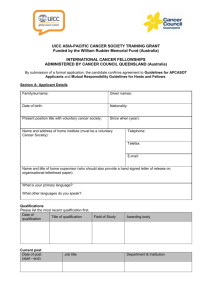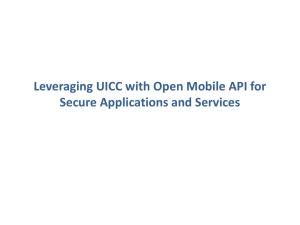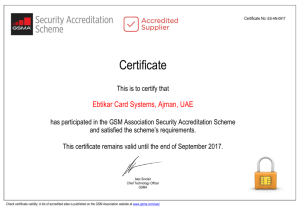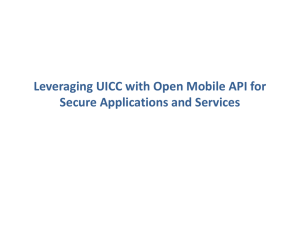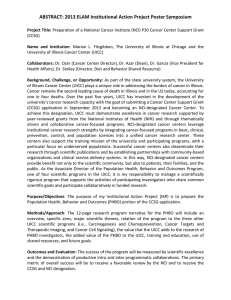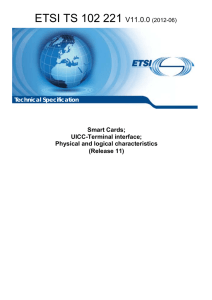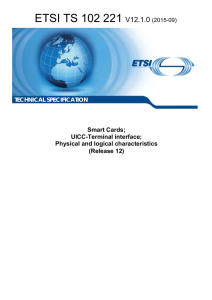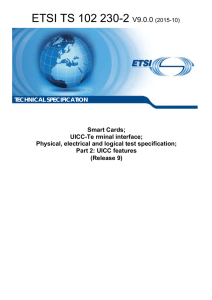Press Release - Summit/GAPRI
advertisement
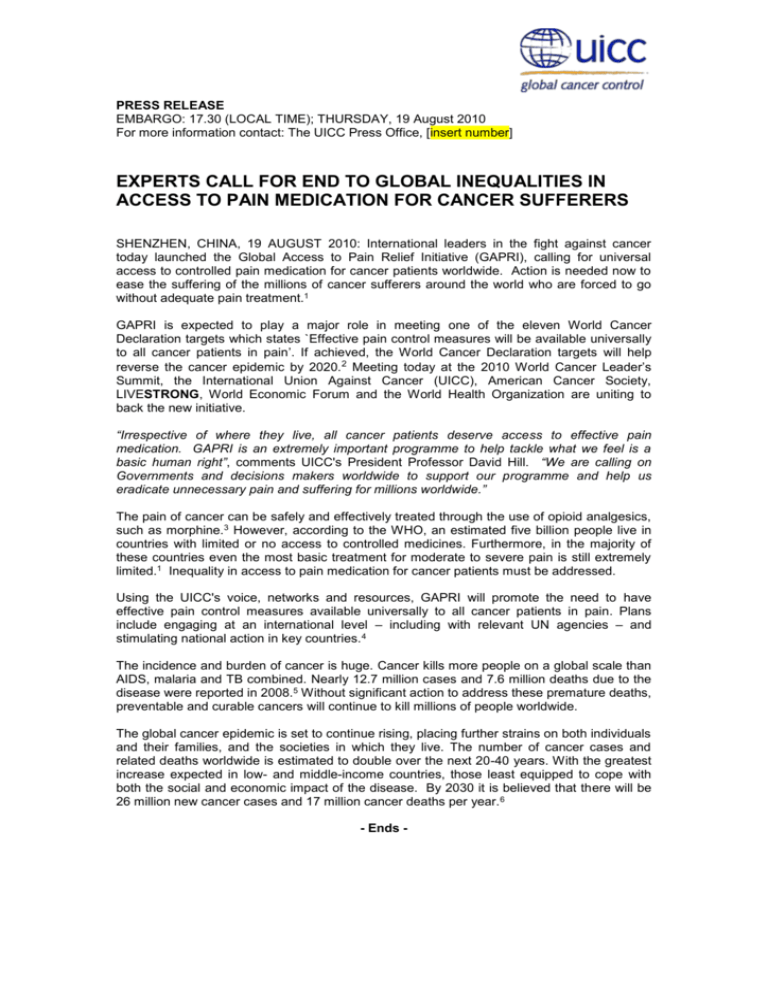
PRESS RELEASE EMBARGO: 17.30 (LOCAL TIME); THURSDAY, 19 August 2010 For more information contact: The UICC Press Office, [insert number] EXPERTS CALL FOR END TO GLOBAL INEQUALITIES IN ACCESS TO PAIN MEDICATION FOR CANCER SUFFERERS SHENZHEN, CHINA, 19 AUGUST 2010: International leaders in the fight against cancer today launched the Global Access to Pain Relief Initiative (GAPRI), calling for universal access to controlled pain medication for cancer patients worldwide. Action is needed now to ease the suffering of the millions of cancer sufferers around the world who are forced to go without adequate pain treatment.1 GAPRI is expected to play a major role in meeting one of the eleven World Cancer Declaration targets which states `Effective pain control measures will be available universally to all cancer patients in pain’. If achieved, the World Cancer Declaration targets will help reverse the cancer epidemic by 2020.2 Meeting today at the 2010 World Cancer Leader’s Summit, the International Union Against Cancer (UICC), American Cancer Society, LIVESTRONG, World Economic Forum and the World Health Organization are uniting to back the new initiative. “Irrespective of where they live, all cancer patients deserve access to effective pain medication. GAPRI is an extremely important programme to help tackle what we feel is a basic human right”, comments UICC's President Professor David Hill. “We are calling on Governments and decisions makers worldwide to support our programme and help us eradicate unnecessary pain and suffering for millions worldwide.” The pain of cancer can be safely and effectively treated through the use of opioid analgesics, such as morphine.3 However, according to the WHO, an estimated five billion people live in countries with limited or no access to controlled medicines. Furthermore, in the majority of these countries even the most basic treatment for moderate to severe pain is still extremely limited.1 Inequality in access to pain medication for cancer patients must be addressed. Using the UICC's voice, networks and resources, GAPRI will promote the need to have effective pain control measures available universally to all cancer patients in pain. Plans include engaging at an international level – including with relevant UN agencies – and stimulating national action in key countries. 4 The incidence and burden of cancer is huge. Cancer kills more people on a global scale than AIDS, malaria and TB combined. Nearly 12.7 million cases and 7.6 million deaths due to the disease were reported in 2008.5 Without significant action to address these premature deaths, preventable and curable cancers will continue to kill millions of people worldwide. The global cancer epidemic is set to continue rising, placing further strains on both individuals and their families, and the societies in which they live. The number of cancer cases and related deaths worldwide is estimated to double over the next 20-40 years. With the greatest increase expected in low- and middle-income countries, those least equipped to cope with both the social and economic impact of the disease. By 2030 it is believed that there will be 26 million new cancer cases and 17 million cancer deaths per year. 6 - Ends - About the World Cancer Leaders’ Summit The purpose of the World Cancer Leaders’ Summit is to: Raise awareness of the global cancer epidemic among individuals who have the potential to mobilise change and make cancer a global health priority Facilitate the sharing of ideas on innovative ways to reverse the global cancer epidemic and ensure sustainability of response Define compelling messages that can be tailored to different settings and give momentum to the global call to action on cancer Create a global force that can galvanise politicians and policy makers into tackling this impending disaster and saving countless lives The theme of the 2010 Summit, “It’s Everyone’s Business”, aims to reinforce the fact that cancer touches everyone — young, old, women and men alike. Despite the remarkable advances in medical science and research, cancer still claims the lives of close to eight million people each year. Without significant improvement, over 17 million people per year will die from cancer by 2030. About GAPRI Led by UICC President Professor David Hill, the Global Access to Pain Relief Initiative (GAPRI) aims to help make effective pain control measures available universally to all cancer patients - target eight of UICC's World Cancer Declaration.2 Joining Professor Hill on the GAPRI Advisory Committee are Dr Jim Cleary, Pain and Policy Studies Group, University of Wisconsin, US; Professor Kathy Foley, Memorial Sloan Kettering Cancer Center, New York; Mr Nathan Grey, National Vice President for International Affairs at the American Cancer Society (observer); and Liliana De Lima, Executive Director for the International Association for Hospice and Palliative Care.7 For more information on the GAPRI initiative, please visit: http://www.uicc.org/node/94. References 1 2 3 4 5 6 7 WHO 2009. Access to Controlled Medications Programme Briefing Note, February 2009 UICC – Declaration. Available at: http://www.uicc.org/declaration/world-cancer-declaration-callaction-global-cancer-community. Last accessed July 2010 WHO 1996. Cancer Pain Relief (second edition) UICC – GAPRI. Available from: http://www.uicc.org/programmes/gapri. Last accessed July 2010 Globocan 2008 Cancer Factsheet. Available from: http://globocan.iarc.fr/factsheets/cancers/all.asp. Last accessed July 2010 Thun M J et al. The global burden of cancer: priorities for prevention. Carcinogenesis. 2009 31(1):100-110, 2010 UICC. Available at: http://www.uicc.org/node/3963 Last accessed July 2010
